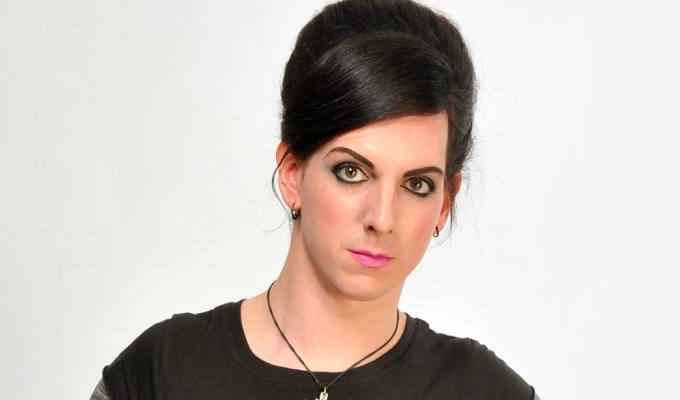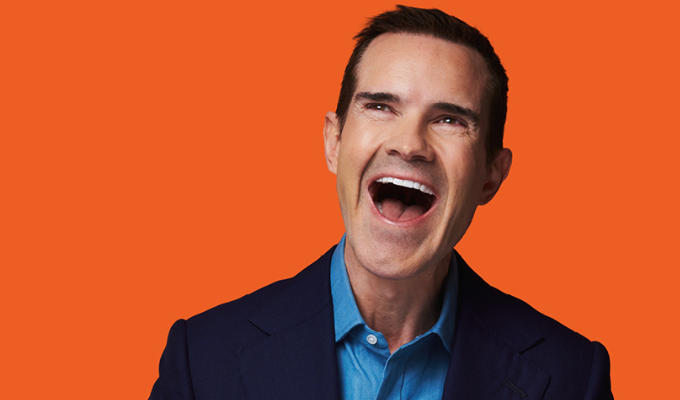Stewart Lee: How I Escaped My Certain Fate
Book review by Steve Bennett
On the face of it, Stewart Lee’s first non-fiction book seems little more than a print version of a DVD commentary. In publishing the transcripts of three of his solo shows with liberal footnotes about how each routine came to be, you may fear this is of interest to only the most meticulous analysts of stand-up who just have to know the arcane details behind every laugh, rather than enjoying a routine at face value.
Since you’re reading Chortle, there is, of course, every chance you fall into that demographic. And if you’re going to study comedy, you might as well do at the feet of such a respected practitioner of the art as Lee, the emeritus professor of comic engineering whose every line is underpinned by thoughtful precision.
Yet such scrutiny of the craftsmanship of comedy is only one aspect of How I Escaped My Certain Fate. As you may have guessed from the title, the book also contains frank autobiographical elements, providing a revealing insight into the psychology and lifestyle of a working comedian.
Lee has long been adored by stand-up aficionados, never losing the cult acclaim he built up when he and Richard Herring were comedy’s bright new things in the early Nineties. But a decade later, with his career in limbo and artistically bored of performing to uninterested audiences, he quit stand-up. Collaborating with composer Richard Thomas on the musical Jerry Springer: The Opera brought him out of his funk, and seemed to indicate the start of a potentially lucrative new career. That is, until the militant puritanicals at Christian Voice got the bit between their teeth and launched a vicious campaign against the show, torpedoing any chance of commercial success.
Perversely, though, we should be thankful to the spiteful religious-right zealots, for their campaign inadvertently imbued Lee with a new sense of purpose, and he made a magnificent return to the circuit with Stand-Up Comedian in 2005, a furiously passionate and brilliant inspired show, the first of the three dissected in this book.
After the lavish production of the opera, the simplicity and directness also appealed, and Lee says his comeback also marked a return to the principles of alternative comedy that he so loved. Not seeking fame or fortune, but just wanting to convey a message to the audience. His later show, 41st Best Stand Up Ever, also included here, would further explore the notions of popularity and fame versus artistic intent.
Of his return, Lee writes that it wasn’t a nostalgic yearning for the idealistic early days of ‘alternative’ comedy that drove him, but desperation. ‘I was like a punch-drunk prize fighter with no other viable skills who thought there might still be a battle to be won,’ he writes.
Life experiences influence most comedians’ work, and Lee explores the highs and lows that drove him to create his acclaimed shows, including a serious digestive illness brought on by decades of poor eating, becoming a father and his on-off commission for a new TV stand-up show, that did – against his own predictions – finally materialise last year.
Against that, he explores how he structures each hour, how he’s drawn to a rhythmic, repetitive delivery, influences that might have led to ideas and even the exact phrasing of gags, and the variations he would include in each night’s performance to stop himself getting bored with the material. Credit goes to those inspire him such as Ted Chippingham, Daniel Kitson, Simon Munnery, Johnny Vegas – as well as the ancient notion of fools and jesters.
As one of the principled comedians who acts as the collective conscience of the comedy scene, often in a very outspoken way, as his recent attack on the Foster’s Edinburgh Comedy Awards proves, Lee also takes a sweeping overview of all the big topics in comedy: joke theft, swearing, selling out, the nature of offence and the role of agents ‘playing poker with his career’.
It’s an impressive statement of his approach to comedy, and a thoughtful must-read for anyone for who considers that getting a laugh is the start of a comedian’s job, not the end of it.
- Stewart Lee's How I Escaped My Certain Fate is published by Faber & Faber on Thursday, priced £12.99. Click here to buy it from Amazon for £7.99
Published: 6 Aug 2010






